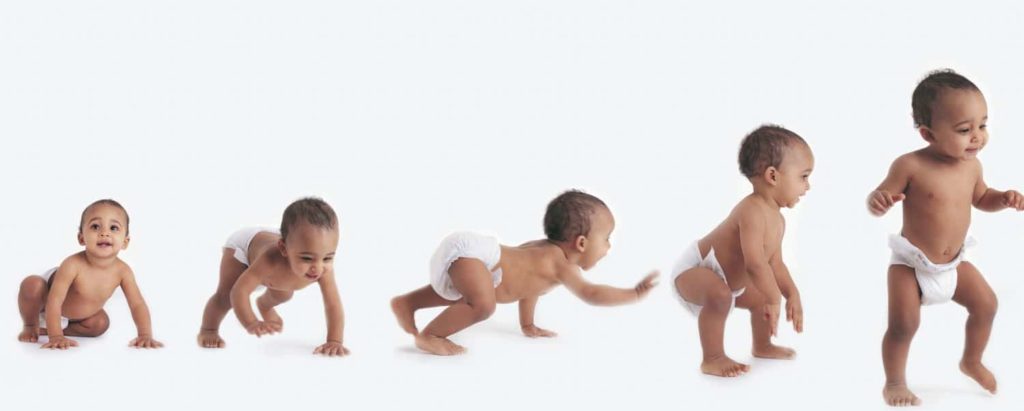 We arrive in the world wired for development, exploration, and learning. But we’re not born with fully developed skills. We have to start somewhere and then build.
We arrive in the world wired for development, exploration, and learning. But we’re not born with fully developed skills. We have to start somewhere and then build.
As neonatal therapists, you get this at a very deep level. In fact, you’re fascinated by it – hence your attachment and devotion to the NICU. Therefore, I’m going to acknowledge up front that you could write a chapter or book on each of the concepts I’ve listed below in regard to development.
But here’s the thing: when thinking about our upcoming Digital Mastery Pack, it hit me that the same concepts that hold true for motor development can apply to developing mastery or specialization in a field like neonatal therapy (or any field for that matter).
Truly – just think about it.
3 things motor development and mastery have in common:
1. Skills Build on Each Other
As humans we don’t come out of the chute and start walking. (Though I did dream that this happened when I was pregnant with my son.) Instead we spend months in a fairly horizontal world learning new skills, pushing up against gravity, time and time again before we master the skill (ta-da!) of being vertical.
Same with your practice. There are no unused skills. No useless parts of your development. Consider this: even if feeding isn’t part of your particular skillset or practice, does that render a lecture on neonatal feeding useless to you? Of course not. Because feeding assessment includes prongs from all of the foundational skills you’ve learned along the way. So even if you don’t personally assess feeding and swallowing, do you gain mastery by comprehending the magnitude and integration of the skills involved? In a word – yes. If your skill set remains horizontal for too long you’ve likely mastered that level. Get vertical.
2. Mobility ON Stability.
Scenario 1: Ask a 6-year-old with poor muscle tone to write his name on the sign-up sheet that’s hanging up on the classroom wall.
Scenario 2: Ask the same boy to write his name on a piece of paper while properly seated with his forearm on his desk.
Which scenario will likely produce better handwriting? (And if you’re being picky- yes, his pencil is the same diameter in both scenarios.)
You’re right! Scenario 2.
Why? Because as you know, fine motor mobility and dexterity is best served by a stable and aligned posture, which is even tougher when you have low tone. Scenario 2 provides more proximal stability for distal movement and coordination. (Similarly, infants in the NICU eat better when they have motor support.)
On your journey toward mastery picture this: when your core is solid (education, skill acquisition, evidence, connection with peers) it supports greater flexibility in thoughts, actions and recommendations for your patients. Without that stability you often slump from the effort of it all, from not really knowing where to begin, and from isolation. The stability you continue to establish or have spent 20+ years establishing supports your ever-refined movements toward mastery. Attempts at mastery without core stability are illegible scribbles instead of works of art.
3. Development is a Continuum Not a Destination.
Baby to do list:
- learn to walk
- use thumb and index finger to pick up a single Cheerio
- drink from cup without sippy lid
“Whew – I’m so glad I have gross and fine motor skills now. I’m all finished developing!”
If it were only that easy.
Sure, developmental milestones have an ideal range for achievement. But are we ever finished developing?
For example, I do not currently have the motor skills to play golf well. (Just ask anyone.) But I’ve played a lot of other sports that involve whacking something with an instrument in hand, and therefore have a lot of the essential tools necessary to continue that area of development. But even with my other skills, I still have to practice THIS one to get better at it.
Sometimes in our professional lives we think we’re fully developed and don’t need to go back and learn something basic (like motor planning for a better a golf swing). But take a closer look and consider whether this particular opportunity is a bit different or additive to what you already know.
People that pursue mastery never actually get there. In fact, that perspective is what mastery is all about. If there’s a destination at the end of your pursuit (college graduation, 20 years in practice, getting tenure, publishing your work) you may find that once you reach that place you look around for something more. That’s because what you truly seek is the thrilling and endless pursuit of mastery.
And if you continue to pursue development rather than achievement you won’t just be upright and walking: you’ll be soaring.

